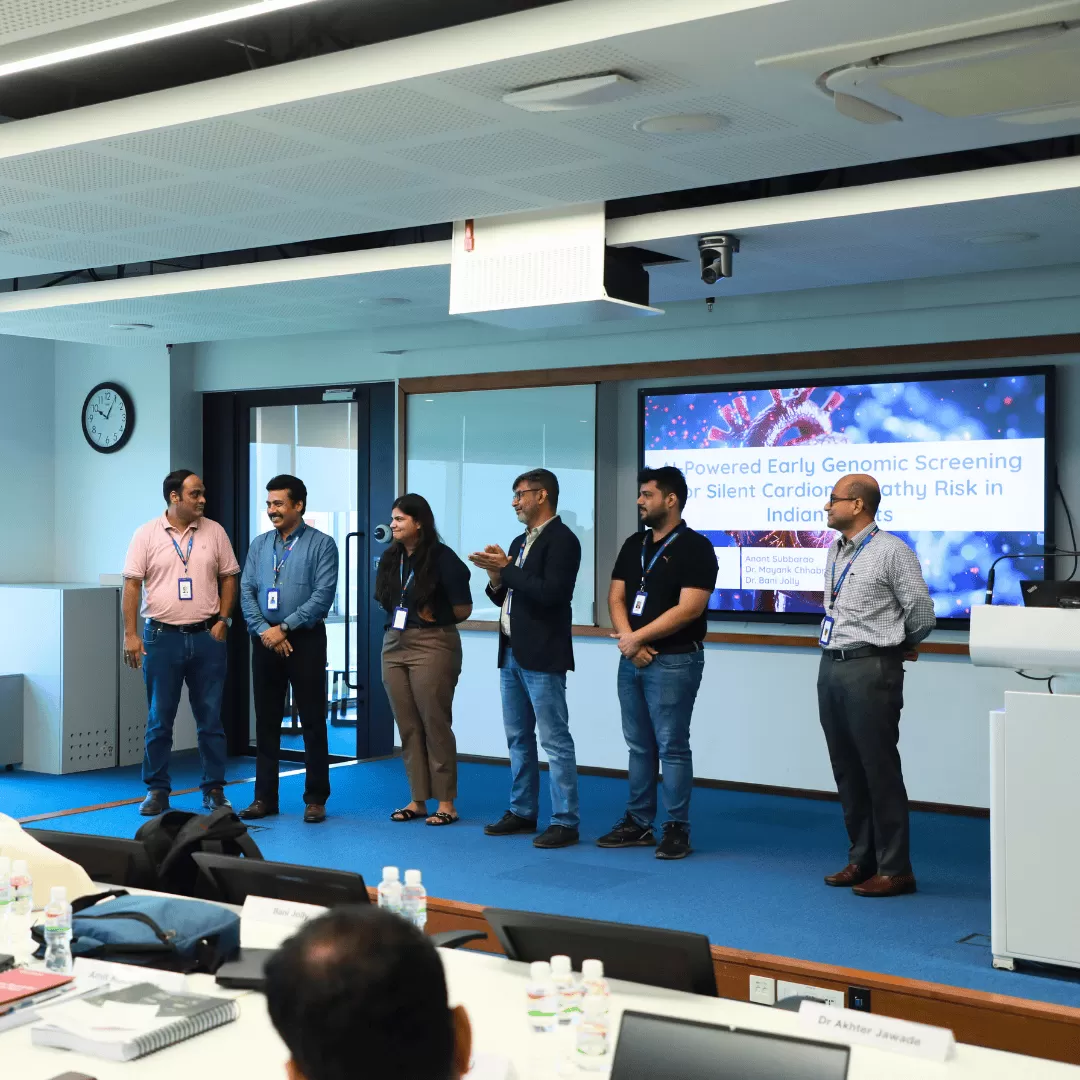Executive Education: Equipping Healthcare Leaders for the AI Revolution


Across hospital boardrooms and clinical corridors in India, the question is no longer whether AI will transform healthcare - it’s whether healthcare leaders have the vision, ethics, and expertise to lead this transformation.
This isn't about some distant future. Right now, across India's hospitals, AI is already making waves. Diagnostic tools are spotting diseases earlier. Predictive models are identifying at-risk patients before symptoms escalate. Yet for every successful AI project, many others never move beyond the pilot stage, stuck between what AI can do and what organisations can implement.
The barrier isn't technology. It's leadership.
Healthcare needs leaders who can handle ethical concerns, build trust between medical and tech teams, and turn innovation into practical solutions. That's exactly where Jio Institute's AI for Healthcare Executive Education Programme steps in - bridging the gap between potential and practice.
Beyond Technical Training: Creating Strategic Leaders
While most AI programmes focus on teaching algorithms, Jio Institute focuses on teaching leaders.
Because in healthcare, success isn’t about knowing every technical detail, it’s about knowing how AI fits into clinical workflows, governance, and strategy. It’s about asking the right questions, setting the right vision, and building the right systems.
The programme revolved around a core idea: “From Pilots to Purpose.” Delivered through four immersive modules, it blended clinical insight, data science, and digital health expertise.
Four Modules, One Clear Path Forward
Module 1: Foundations and Clinical Decision Support, facilitated by Dr Shailesh Kumar, Dean of Jio Institute, built the strategic foundation participants needed to think clearly about AI in healthcare. Participants explored how AI supports clinical decision-making through risk prediction and early warning systems, while understanding the essential boundaries and safeguards needed for safe medical AI use.
Module 2: Applied Clinical AI, led by Dr Avneesh Khare, a clinician-educator certified by the American Board of AI in Medicine, examined AI applications across the entire care spectrum - from drug discovery and preventive care to remote monitoring and hospital operations. Dr Khare brought practical insights from helping clinicians work with AI in actual business settings.
Module 3: From Idea to Bedside, facilitated by Dr Kshitij Jadhav from IIT Bombay's Koita Centre for Digital Health, tackled the challenges that cause most AI projects to get stuck between promising prototype and working implementation. This module covered privacy-preserving approaches like anonymisation and federated learning, strategies for fitting technology into existing clinical workflows, and methods for building stakeholder trust through solid validation and clear communication.
Module 4: Ethics, Privacy & Implementation, led by Dr Jaideep Rayapudi, focused on the ethical, legal, and governance frameworks needed for responsible AI adoption in healthcare. Dr Rayapudi brought knowledge about creating AI systems that earn trust whilst delivering value. Participants examined the Digital Personal Data Protection Act 2023 and what it means for patient consent and healthcare data, explored the real consequences of algorithmic bias and strategies for fair data practices.
Translating Learning into Leadership: Key Takeaways
Across the four modules, participants gained practical frameworks and strategic insights they could directly apply in their own organisations:
Strategic AI Thinking: Leaders learned to cut through hype and evaluate AI proposals critically focusing on where AI creates real value and how to adopt it responsibly.
Real-World Application: Through case studies spanning diagnostics, remote monitoring, and hospital operations, participants learned to assess whether specific AI applications justify the investment and change they require.
Implementation Roadmaps: Participants gained strategies for handling the obstacles that derail most projects—fragmented data, privacy concerns, workflow integration, and physician resistance—separating successful rollouts from endless pilots.
Governance and Accountability: Leaders built expertise in ethical oversight, regulatory compliance including the DPDP Act 2023, and reducing algorithmic bias—going beyond compliance boxes to build governance that balances innovation with responsibility.
From Pilots to Purpose: Most importantly, participants learned how to escape the pilot trap and turn AI experiments into scalable programmes that deliver lasting value and better patient outcomes.
The integrated design ensured participants left with more than just theory—they gained actionable frameworks for leading AI transformation responsibly in their own healthcare organisations.
From Bench to Bedside: Turning Vision into Action
The programme concluded with a panel discussion that brought everything together. Titled "AI in Medicine — From Bench to Bedside," the session featured four experts who shared candid insights on turning AI innovation into clinical reality.
- Dr Anjali M. K. (VP of RWD, 4baseCare Precision Health) discussed the challenge of translating cutting-edge research into everyday clinical practice
- Major Dr Ashlesha Tawde Kelkar (Maharashtra University of Health Sciences) made the case for why medical students need AI literacy now—not later
- Dr Jaideep Rayapudi emphasised why transparency, safety, and accountability must lead innovation, not follow it
- Dr Avneesh Khare explored the new career frontiers opening where medicine meets AI
Just before the panel, six teams presented AI-driven solutions tackling healthcare challenges - from non-invasive cancer diagnosis and early sepsis warnings to faster CT scan analysis and AI screening for inherited heart conditions. Each project demonstrated something important: the AI transformation is no longer on the horizon. It's already here.
The Leadership Imperative
This brings us back to where the programme began. During the opening session, Dr Shailesh Kumar captured the moment perfectly: "The AI revolution is among the tectonic moments in human history—its impact on healthcare is hard to ignore." Dr Alka Patnaik took this further, reminding participants that doctors must see themselves not just as users of technology, but as creators of solutions.
This is precisely what Jio Institute's Executive Education Programme addresses. By blending strategy, ethics, and implementation expertise, it's building a generation of healthcare leaders who can embrace AI without losing sight of what truly matters—patient care and institutional sustainability.
The revolution is already underway. The only question remaining is: will you lead it?
